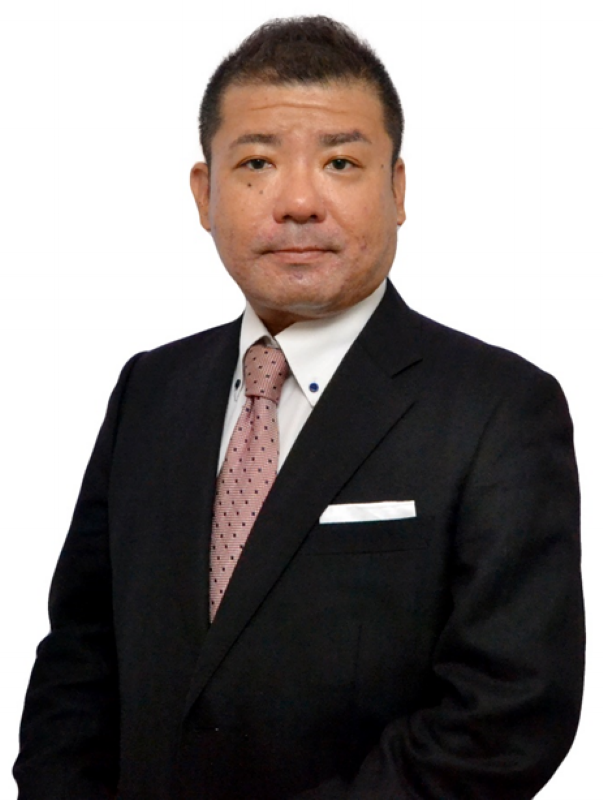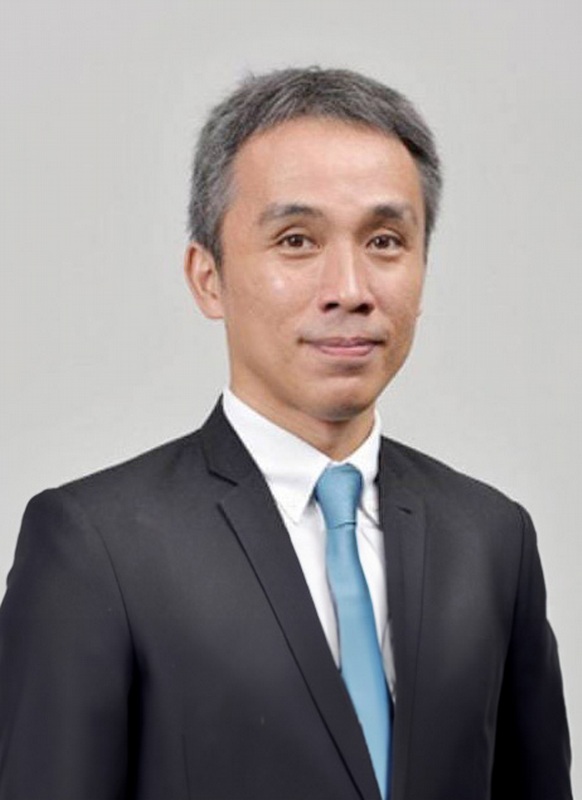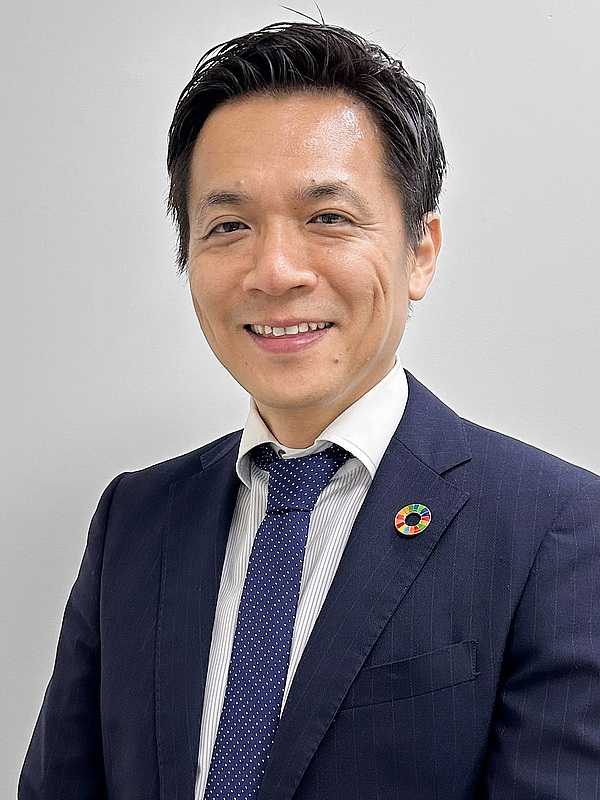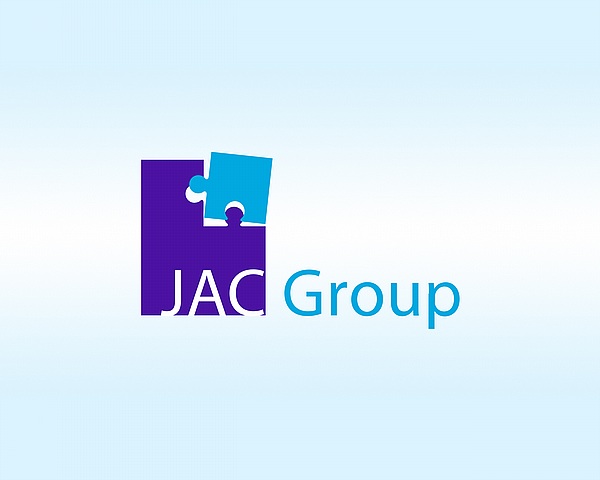JAC Recruitment, a leading global recruitment firm with a presence in 11 countries, has analysed recruitment market trends in Asian countries where JAC Group companies operate, for the first quarter of 2024 (January to March).
【JAC Recruitment Asia: Job Listing Comparison Report (Previous Quarter and YOY)】
*Recruitment Related to Overseas Operations of Japanese Companies
Note: The number of job openings in each Asian country may fluctuate due to deliberate strategies implemented by individual Asian companies (such as focusing on high-paying job openings or specialist positions). Therefore, changes in the number of job openings in each Asian country do not directly reflect the performance of each company.
The mid-career recruitment market in Asian countries remained generally stable, with growth of around 10% compared to the previous quarter, except for short-term fluctuations in job openings and job seekers due to seasonal and religious holidays. (Note: some countries may deviate from this trend.)
In high-growth sectors, particularly those related to mobility, Japanese companies continue to face fierce competition for talent acquisition from local companies in each country as well as European and Asian multinational corporations.
The demand for management personnel, including replacements for expatriates dispatched from headquarters, is growing among Japanese companies. To compete with rivals, Japanese companies need to enhance their recruitment strategies by offering attractive compensation packages, clear delineation of responsibilities and authority, and faster decision-making processes, including those involving the Japanese headquarters.
<Summary>
| Singapore | Unveiling of Plans for Further Tightening of Employment Visa Requirements in 2025: Current Situation and Implications |
| Malaysia | Economic Growth is Leading to a Steady Recovery in the Labor Market |
| Thailand | Domestic Demand is Expected to Recover, and the Need for Replacement Positions for Expatriates Remains Strong |
| Indonesia | Indonesia's GDP Growth Rate in 2023 was 5.05%, and Growth is Expected to Exceed 5% in 2024. |
| Vietnam | Signs of Recovery are Evident across the Vietnamese Economy, and Expectations for Continued Growth Remain High. |
| Korea | Robust Hiring Demand in the Automotive Industry Continues from the Beginning of the Year. |
| India | Rising Recruitment Costs and Prolonged Hiring Periods Due to a Seller's Market. |
| Japan | Stock Prices Reach New Highs But Uncertainty Persists About the Future; Overseas Business Personnel Recruitment Becomes More Diversified. |
Number of job offers YOY:55%
Number of job openings YOY (past 3 years):
|
2021 |
2022 |
2023 |
2024 |
||||||||
|
Apr - Jun |
Jul - Sep |
Oct - Dec |
Jan - Mar |
Apr - Jun |
Jul - Sep |
Oct - Dec |
Jan - Mar |
Apr - Jun |
Jul - Sep |
Oct - Dec |
Jan - Mar |
|
100% |
112% |
90% |
151% |
96% |
156% |
68% |
157% |
59% |
95% |
91% |
108% |
Singapore's economic outlook for 2024 appears stable. GDP growth is projected between 1.0% and 3.0%, and inflation is expected to moderate compared to the previous year. The upcoming leadership transition with the retirement of Prime Minister Lee Hsien Loong and the 2025 general elections raise questions about potential policy shifts under the new administration.
Singapore's job market is experiencing its lowest activity level since 2017, with a low job-switching rate (only 14.7% of workers changed jobs in the past two years). This trend suggests that companies might need to adapt their recruitment strategies.
Stricter work visa requirements for foreigners necessitate a focus on hiring local talent, particularly for Japanese companies. The new work visa assessment system (COMPASS) prioritises reducing nationality bias within organisations, making it even more challenging to hire permanent resident Japanese nationals. As a consequence, companies are fiercely competing for candidates, with some resorting to closing departments or relocating offices with a high concentration of foreign staff.
However, there are also positive signs, with new job postings emerging from newly established companies entering the market.
Despite traditionally high registration periods, the number of job seekers this year has been low. Difficulty in obtaining work visas has dampened job search activity among Japanese job seekers in Singapore, and pursuing opportunities abroad has also become more challenging.
Traditionally, job searches would pick up after the year-end bonus season, but with stricter work visa requirements expected from January 2025, the job market is predicted to experience a slowdown. The pool of Singaporean Japanese speakers (who don't require work visas) remains limited, while demand is steadily increasing, leading to intense competition among companies to secure these candidates.

Managing Director of JAC Recruitment Singapore
Fahad Farook
■JAC Recruitment Singapore Overview
https://www.jacgroup.com/en/locations/country/singapore
■JAC Recruitment Singapore Website
https://www.jac-recruitment.sg/
Number of job offers YOY:88%
Number of job openings YOY (past 3 years):
|
2021 |
2022 |
2023 |
2024 |
||||||||
|
Apr - Jun |
Jul - Sep |
Oct - Dec |
Jan - Mar |
Apr - Jun |
Jul - Sep |
Oct - Dec |
Jan - Mar |
Apr - Jun |
Jul - Sep |
Oct - Dec |
Jan - Mar |
|
116% |
95% |
104% |
105% |
105% |
131% |
61% |
132% |
78% |
111% |
87% |
118% |
The Malaysian economy performed strongly in the first quarter of 2024, outpacing growth forecasts for the ASEAN region as a whole. GDP is projected to grow by 5%, exceeding the ASEAN estimate of 4.8%.
Malaysia is leading the region in economic growth due to factors such as the ongoing semiconductor boom, strong consumer demand for US goods, and high demand for travel and services. This growth forecast is largely in line with the Malaysian central bank's expectations, suggesting a positive outlook for the economy next year.
Inflation is expected to remain stable at 2.5% in 2024, although there are concerns about potential risks, such as the government's planned changes to subsidy distribution methods.
Additionally, external factors such as global commodity price fluctuations, a slowdown in the Chinese economy, and uncertainties surrounding the US presidential election could pose challenges to Malaysia's growth. However, Malaysia is expected to benefit from rising semiconductor sales, which are projected to peak by the end of the year.
Malaysia's labor market is showing signs of recovery, with unemployment at a low of 3.3% and the number of employees growing steadily by 2% year-on-year. While slightly higher than the pre-pandemic average of 2019, the number of unemployed has decreased by nearly 5% from last year, reaching 567,000 in January 2024, indicating an improvement.
It is interesting to note that employees working in the private sector account for the majority, at around 75.2%, and have increased by about 1.3% year-on-year. This strengthening of the labor market is not only beneficial for individual job seekers but also likely to boost consumer spending and ultimately support economic growth this year.
Furthermore, the number of job openings in Malaysia in January 2024 has recovered to around 94,100, suggesting an improving situation for those seeking new opportunities.
Job seekers are actively responding to the revitalising job market. They recognise the need for continuous learning and skill development to adapt to the dynamic environment and remain competitive as sought-after talent. They are actively exploring ways to broaden their skill sets, such as taking various training courses and workshops, learning new software programs, and considering specific upskilling or reskilling opportunities.
By proactively seeking opportunities to upgrade their skills and acquire new ones, job seekers not only enhance their professional capabilities but also demonstrate their investment in personal growth and self-development.

JAC Recruitment Malaysia Managing Director
Nick Taylor
■JAC Recruitment Malaysia Overview
https://www.jacgroup.com/en/locations/country/malaysia
■JAC Recruitment Malaysia Website
https://www.jac-recruitment.my/
Number of job offers YOY:68%
Number of job openings YOY (past 3 years):
|
2021 |
2022 |
2023 |
2024 |
||||||||
|
Apr - Jun |
Jul - Sep |
Oct - Dec |
Jan - Mar |
Apr - Jun |
Jul - Sep |
Oct - Dec |
Jan - Mar |
Apr - Jun |
Jul - Sep |
Oct - Dec |
Jan - Mar |
|
90% |
93% |
90% |
154% |
80% |
143% |
57% |
205% |
82% |
97% |
79% |
108% |
Thailand's GDP growth in 2023 slowed down to 1.9% from 2.6% in 2022, primarily due to sluggish exports and a slower-than-expected recovery in consumer spending. The National Economic and Social Development Council (NESDC) has revised its GDP forecast for 2024 to 2.2% to 3.2%, down from its previous estimate of 2.7% to 3.7%.
Domestic demand, particularly consumer spending, is expected to pick up in 2024 but at a moderate pace. In the tourism sector, the Thai government has raised its target for foreign tourist arrivals from 28.1 million in 2023 to 35 million in 2024, aiming to boost economic recovery.
The demand for local Japanese employees continues to grow in Thailand. Hiring trends indicate that companies are increasingly seeking to fill vacancies rather than expanding their workforce. Many of these openings are for high-level positions such as MD, GM, and Manager, as well as manufacturing supervisors and sales executives responsible for expanding into new markets in ASEAN and other overseas regions. These positions require extensive experience and high skills.
The main reason why many companies are looking for local Japanese talent with these high skills is that they do not have enough resident candidates at headquarters and are unable to send residents due to personnel structure issues. Some companies are also reducing resident costs, and the demand for local hires to replace residents is expected to continue in the future.
The rise in companies seeking high-level talent to replace resident staff coincides with a growing pool of former residents interested in long-term careers in Thailand. This trend is particularly noticeable among those in their 40s and 50s. These individuals typically possess conversational English or Thai language skills, extensive experience, high expertise, or specific manufacturing-related skills and knowledge. Their immediate contribution potential makes them attractive candidates for companies seeking to drive growth.

JAC Recruitment Thailand Managing Director
Gavin Henshaw
■JAC Recruitment Thailand Overview
https://www.jacgroup.com/en/locations/country/thailand
■JAC Recruitment Thailand Website
https://www.jac-recruitment.co.th/
Number of job offers YOY:134%
Number of job openings YOY (past 3 years):
|
2021 |
2022 |
2023 |
2024 |
||||||||
|
Apr - Jun |
Jul - Sep |
Oct - Dec |
Jan - Mar |
Apr - Jun |
Jul - Sep |
Oct - Dec |
Jan - Mar |
Apr - Jun |
Jul - Sep |
Oct - Dec |
Jan - Mar |
|
97% |
83% |
107% |
138% |
101% |
61% |
129% |
85% |
148% |
64% |
117% |
122% |
Positive economic news emerged from Indonesia in February when the Central Statistics Agency (BPS) announced a real GDP growth rate of 5.05% for 2023. This marks a continuation of the strong performance seen in 2022, with both years exceeding 5% growth.
The recent presidential election, where Prabowo Subianto won on promises to maintain the policies of his predecessor Joko Widodo, further fuels optimism for Indonesia's economic prospects in 2024. Subianto's victory was accompanied by the election of Gibran Rakabuming Raka, Widodo's eldest son, as the vice president.
The first quarter of 2024 witnessed a slowdown in corporate hiring activities compared to usual trends. This cautious approach can be attributed to the recent presidential election. Companies are likely waiting for a clearer picture of the new administration's policies before making significant changes to their hiring plans. The recruitment of Japanese workers also reflects this trend, with some companies extending interview processes or suspending hiring activities until the end of March.
While the overall pace of hiring slowed, specific sectors like IT and FMCG (consumer goods) continued to actively recruit new talent. However, hiring in construction and related industries associated with the new capital city development remains cautious.
Indonesian job seekers often use the religious bonus, legally mandated and typically paid in March, as a trigger to launch their job searches. This trend extends to Japanese job seekers residing in Japan, who view the end of the fiscal year as a prime window for job transitions, leading to a surge in activity during the first quarter.
In contrast, Indonesian-based Japanese job seekers often wait to begin their search until after receiving their religious bonus, suggesting an increase in their numbers after March. This year also saw a notable rise in university graduates entering the job market after their April graduation.

JAC Recruitment Indonesia Associate Director
Toma Yamashita
■JAC Recruitment Indonesia Overview
https://www.jacgroup.com/en/locations/country/indonesia
■JAC Recruitment Indonesia Website
https://www.jac-recruitment.co.id/
Number of job offers YOY:97%
Number of job openings YOY (past 3 years):
|
2021 |
2022 |
2023 |
2024 |
||||||||
|
Apr - Jun |
Jul - Sep |
Oct - Dec |
Jan - Mar |
Apr - Jun |
Jul - Sep |
Oct - Dec |
Jan - Mar |
Apr - Jun |
Jul - Sep |
Oct - Dec |
Jan - Mar |
|
180% |
76% |
60% |
248% |
111% |
84% |
67% |
137% |
119% |
105% |
91% |
86% |
Positive economic news emerged from Vietnam in the first quarter of 2024. The General Statistics Office (GSO) reported an estimated GDP growth rate of 5.66% year-on-year, the highest recorded for the first quarter in the past four years. This strong performance was driven by growth in key sectors like services, industry, and construction. The services sector benefited from a tourism rebound fueled by flexible visa policies and tourism promotion programs.
Additionally, total investment capital implemented throughout society in the first quarter increased by 5.2% year-on-year, indicating a recovery trend in production and business activities across numerous industries and sectors in Vietnam.
The first quarter typically sees a slowdown in local talent mobility due to the Lunar New Year holiday and bonus payments. This trend continued in 2024. As in previous years, the period from April to June after the Lunar New Year is expected to be the busiest for candidate mobility. This will likely lead to increased hiring needs for both filling existing vacancies and expanding workforces.
Hiring activities are expected to be particularly active in the manufacturing and construction sectors, which saw growth in the first quarter, especially in the semiconductor industry.
There has also been a rise in inquiries from companies aiming to localise the operations of their Vietnamese branches. This suggests a potential future increase in the need to replace resident staff with local hires. However, the labor permit application process for foreign workers remains unclear in many aspects, and further developments should be closely monitored.
Job-seeking activities among local talent tend to slow down during the first quarter but are expected to pick up after the Lunar New Year through the first half of the year.
The number of overseas job seekers from Japan to Vietnam remains somewhat subdued. Unlike other countries, Vietnam offers fewer retirement-based job transition opportunities. Consequently, senior Japanese professionals continue to show strong interest in overseas job transitions, and many are actively seeking new opportunities.
On the other hand, there is a growing pool of potential candidates interested in overseas employment among the junior and middle-class in Japan due to the current economic situation. However, some are cautious due to factors like compensation and benefits.

JAC Recruitment Vietnam Regional Director
Thu Ha Nguyen
■JAC Recruitment Vietnam Overview
https://www.jacgroup.com/en/locations/country/vietnam
■JAC Recruitment Vietnam Website
https://www.jac-recruitment.vn
Number of job offers YOY:57%
Number of job openings YOY (past 3 years):
|
2021 |
2022 |
2023 |
2024 |
||||||||
|
Apr - Jun |
Jul - Sep |
Oct - Dec |
Jan - Mar |
Apr - Jun |
Jul - Sep |
Oct - Dec |
Jan - Mar |
Apr - Jun |
Jul - Sep |
Oct - Dec |
Jan - Mar |
|
167% |
88% |
117% |
90% |
96% |
84% |
125% |
104% |
73% |
169% |
60% |
76% |
The display and automotive industries continued their strong performance from the end of last year, and exports are expected to continue to grow. While exports have increased, domestic sales of Hyundai and Kia, the two major automakers, have decreased year-on-year.
However, this is seen as a temporary phenomenon in the transition period from sales volume to value-added sales such as quality. Hyundai, which has actually shifted to a profit-oriented policy, saw its operating profit for the first quarter reach a record high.
The semiconductor industry is sluggish, with Samsung Electronics announcing an operating loss of 14.88 trillion won in the semiconductor division for the fiscal year ended December 2023, while SK Hynix turned to a black profit for the first time in a year in the October-December period of 2023.
Job openings in the automotive industry, including secondary batteries and HEVs, increased slightly year-on-year in the first quarter. However, due to the strong export performance of the automotive industry, it seems that the need for increased hiring is more for pre-investment rather than vacancy filling.
There were many requests for technicians and career salespeople in their 30s with experience in niche areas with a small number of people, but due to the acceleration of the hiring shortage in the first quarter, the age range is also becoming wider. In addition, there are many requests for Japanese speakers from Japanese companies, but recently, it has become difficult to hire because there are especially few young people.
In recent years, there have also been an increasing number of cases of expanding business to East Asia and neighboring countries from Korea, so there are also an increasing number of requests for English and Chinese speakers. The outlook for the automotive and secondary battery industries is expected to remain good, and there are many talks about expanding hiring plans.
While the semiconductor industry is still active, people in the industry are starting to move to the automotive-related secondary battery & HEV industry due to the strong export performance of the automotive industry. In particular, there is an increasing need for sales professionals, but more and more candidates are moving in search of conditions amid continuing inflation in Korea.
Overall, salaries are rising, but prices are rising even more, so there seems to be a high awareness and need for better conditions, but many candidates still seem to be cautious about changing jobs.
There are also some positions that are said to be reversing with Japan in terms of salary, but the hiring power of Japanese companies is not high in the market.

JAC Recruitment Korea Managing Director
Masashi Kato
■JAC Recruitment Korea Overview
https://www.jacgroup.com/en/locations/country/korea
■JAC Recruitment Korea Website
https://www.jac-recruitment.kr/en
Number of job offers YOY:96%
Number of job openings YOY (past 3 years):
|
2021 |
2022 |
2023 |
2024 |
||||||||
|
Apr - Jun |
Jul - Sep |
Oct - Dec |
Jan - Mar |
Apr - Jun |
Jul - Sep |
Oct - Dec |
Jan - Mar |
Apr - Jun |
Jul - Sep |
Oct - Dec |
Jan - Mar |
|
65% |
214% |
114% |
71% |
121% |
111% |
107% |
139% |
109% |
101% |
79% |
110% |
According to the International Monetary Fund (IMF), India's GDP growth rate for the next fiscal year starting April 1, 2024, is projected to be 6.5%, and is further expected to remain strong at 6.5% in 2025.
Reflecting the strength of domestic demand, the IMF also announced that these figures represent an upward revision of 0.2 percentage points each from the October 2023 forecast. The Indian Ministry of Finance also expects the growth rate for the next fiscal year to be around 7%, further highlighting the continued strength of the economy.
One indicator of India's economy is automobile sales, which reached a record high for the period up to March 2024, reflecting the strong growth in personal consumption in India. Against this backdrop, many companies are actively intensifying their recruitment activities to strengthen their departments or expand their workforce.
It is also notable that some companies that had been taking a wait-and-see approach have decided to fully enter the Indian market, and there have been cases of recruitment for personnel associated with company establishment.
The recruitment market is a seller's market, and in order to secure outstanding talent, companies are increasingly facing situations where they incur higher recruitment costs than budgeted due to counteroffers from competitors, or where candidates decline even after receiving offers. As a result, the recruitment period is becoming longer for many companies.
The local recruitment market sees an increase in job seekers becoming active from April onwards, coinciding with the performance evaluation period. This period, when candidates carefully compare their company's salary increase rates with those of potential employers in order to find the best possible conditions, can be a major headache for companies.
As for Japanese job seekers, the number of people considering overseas employment is increasing compared to the previous year. However, rather than focusing solely on India, they are considering other countries as well, and taking their time to find a suitable job that meets their salary expectations and provides valuable overseas experience.

JAC Recruitment India Managing Director
Kazuo Komaki
■JAC Recruitment India Overview
https://www.jacgroup.com/en/locations/country/india
■JAC Recruitment India Website
https://www.jac-recruitment.in
Number of job offers YOY:92%
Number of job openings YOY (past 3 years):
|
2021 |
2022 |
2023 |
2024 |
||||||||
|
Apr - Jun |
Jul - Sep |
Oct - Dec |
Jan - Mar |
Apr - Jun |
Jul - Sep |
Oct - Dec |
Jan - Mar |
Apr - Jun |
Jul - Sep |
Oct - Dec |
Jan - Mar |
|
110% |
87% |
107% |
114% |
99% |
112% |
100% |
119% |
100% |
88% |
95% |
109% |
The Nikkei Stock Average continued its upward trend after reaching a 34-year high in February, hitting the 40,000 yen mark in March. Exports in February also increased by 7.8% year-on-year due to the impact of the yen's depreciation, marking the third consecutive month of increase.
Looking at domestic demand, many companies have announced wage increases, and the number of foreign visitors to Japan in February increased by 89% year-on-year, providing positive signs for the non-manufacturing sector.
On the other hand, while the soaring corporate goods price index has recently shown signs of calming down, there are concerns that the upper limit on working hours for the transportation and construction industries, which will be implemented from April, could lead to cost increases. In addition, there is a risk that exports could be hampered by production cuts in the manufacturing sector due to labor shortages.
The seasonally adjusted job openings-to-applicants ratio excluding part-time workers was 1.31 times in February 2024. This represents a slight decrease of 0.02 points from the ratio of 1.33 times in November 2023, three months earlier, but it remains at a high level.
The number of new job openings for Japanese overseas business personnel received by our company in the first quarter of 2024 decreased by 92% year-on-year. While there were many job openings from major companies, such as automakers and first-tier automotive suppliers, for new energy vehicles and the healthcare industry, which is becoming increasingly globalised, there was still no sign of an increase in the number of job openings from small and medium-sized enterprises.
Limiting to overseas resident personnel, the number of job openings has increased further since October-December of last year, reaching 174% of the same period of the previous year.
Many of the job openings are for replacement personnel at existing production bases in Asia, such as China and Thailand, in the automotive and machinery parts manufacturing industries. There are also many job openings related to supply chain reviews aimed at responding to geopolitical risks. In terms of regions, there is a wider range of destinations, including Europe, Latin America, and the Middle East.
In addition, there are active job openings for global HR personnel for global human capital management and organisational globalisation, as well as personnel for auditing and ERP (Enterprise Resource Planning) implementation for strengthening governance at overseas bases.
The number of new job seekers with overseas work experience in the first quarter increased significantly by 122% year-on-year and 118% quarter-on-quarter.
There has been a lot of media coverage and advertising encouraging job mobility, and the proportion of people who have actually increased their annual income after changing jobs has also increased.
In addition, more and more companies are actively promoting their efforts to review compensation systems, benefits, and work styles in order to acquire external talent, which is further increasing interest and motivation in job switching.

JAC Recruitment Overseas Expansion Support Office Chief Analyst
Kenji Sahara
■JAC Recruitment Overview
https://www.jacgroup.com/en/locations/country/japan
■JAC Recruitment Website
https://www.jac-recruitment.jp/










